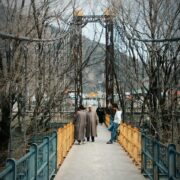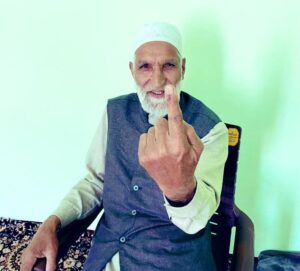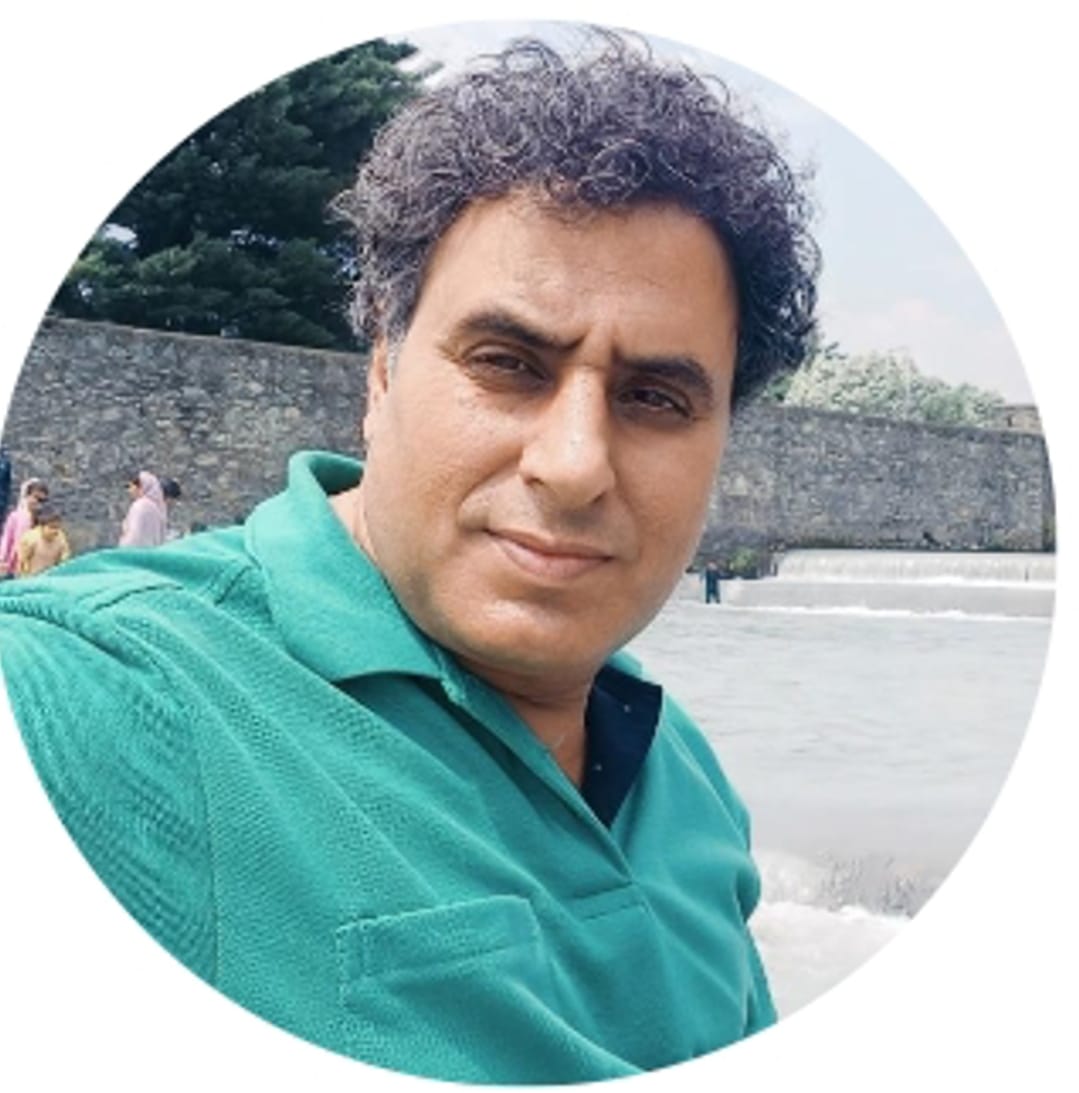Jamaat Leaders Fail To Open Account In Kashmir’s Electoral Politics, And Why

Candidates aligned with Jamaat-e-Islami (JeI) have failed to win even a single seat in the recently concluded Assembly elections in Jammu and Kashmir. Nobody is surprised, because nobody expected the Jamaat-associated candidates to win, even though the hype was high.
In the process, the Jamaat-associated candidates have only exposed themselves that their singular focus is the pursuit of power.
Top leaders of the Jamaat always claimed monopoly of public sentiment. Their public posturing was that if they stepped into the electoral fray, entire Kashmir would vote for them.
Their lies have been exposed.
One of the most high-profile battles of a Jamaat-associated candidate was in Kulgam in South Kashmir. Sayar Ahmad Reshi, a prominent Jamaat leader of the area, was pitched against CPI(M)’s Mohd. Yousuf Tarigami – the four-time MLA from the area. Reshi managed to win only 25,796 votes while Tarigami won 33,634 votes from the area.
The Jamaat leaders who fought elections from other areas fared far worse. In Pulwama, Talat Majid Alie won only 1833 votes. In Devsar, Nazir Ahmad Bhat won only 5838 votes. In Bandpidora, Mohammad Sikander Malik won only 2411 votes. In Sopore, Manzoor Ahmad Kaloo won only 406 votes. All of them lost the election.
Aijaz Ahmad Guroo, the brother of 2001 Parliament attack convict Afzal Guroo, won only 129 votes from Sopore. It is notable that 341 people voted for the NOTA (None Of The Above) category in Sopore but they did not vote for Guroo.
False Claims of Jamaat’s Shift to Democratic Participation
The statement by Hafiz Mohammad Sikander, a Jamaat-e-Islami (JeI) backed candidate, declaring that Jamaat had refrained from elections since 1987 to protest rigging, is nothing short of a “safed jhoot” (a blatant lie). This narrative attempts to paint a picture of JeI’s commitment to transparent elections and democratic values. However, history tells a much different story, one that Syed Ali Shah Geelani frequently referenced in his sermons.
JeI Has Always Undermined Democracy
If the JeI’s intent had genuinely been to ensure free and fair elections in Jammu and Kashmir, why did it back away from supporting electoral processes in the first place? Instead of pushing for democratic reforms or electoral transparency, they formed Hizbul Mujahideen, an armed militant wing, further distancing themselves from peaceful democratic engagement.
Nobody expected the Jamaat-associated candidates to win, even though the hype was high
The formation of Sharia Adalats in the early 1990s was yet another step in defying the state’s legal systems, creating a parallel judiciary that undermined democratic governance and the rule of law.
It wasn’t until 1998, under the leadership of Ghulam Mohammad Bhat as the Ameer of JeI, that they filed a petition in the Supreme Court, signalling a formal distancing from armed struggle. This significant shift was less about their commitment to democratic ideals and more about recalibrating their strategy in the face of changing circumstances.
Even this shift did not result in a return to electoral politics or a strong democratic presence. Instead, Jamaat found political allies in figures like People’s Democratic Party (PDP) chief Mufti Mohammad Sayeed, aligning themselves with power structures that served their broader agenda.
JeI Past Actions and Current Positioning
The claim that Jamaat now seeks to serve the people democratically rings hollow when juxtaposed with their historical actions. If JeI had truly believed in the power of transparent elections, their actions in the past decades would have reflected a continuous push towards electoral reform, not an embrace of militancy.
Sikander’s statement about the importance of elected representatives may resonate with some. But for those familiar with Jamaat’s past, it feels more like an opportunistic narrative crafted for current political convenience rather than a genuine ideological shift.
I vividly remember the heated debates between Nadeem, Shameem, and Tajamul, all members of Jameeyat Tulba, the student wing of Jamaat-e-Islami, during our time at Government Degree College, Anantnag. They would regularly organize ijtima to propagate their religious ideology.
As the lone voice of secularism and communism, I stood firm against them. With courage and dedication, I would often disrupt their gatherings by organising NCC parades where we would chant slogans like Bharat Mata Ki Jai, openly challenging their extremist views.
Threats For Diverse Political Views
In 2004, when Mohammad Yousuf Tarigami was the parliamentary candidate for the Anantnag constituency, I actively campaigned for him in Shangus and Kokernag. After the elections, Sheikh Ramzan visited my home. My village is Trahpoo in Achabal tehsil, Anantnag district. They warned my mother that I would be killed by our so-called well-wishers, referring to militants of the Hizbul Mujahideen.
My mother, unfazed, served him tea and calmly responded that I was a political worker, just like him, and that no threats or intimidation would deter me from my commitment to democratic politics and my beliefs.
After the 2004 elections, when Ramzan Sheikh came to our home with open threats, I had to spend more than four months in the Government Housing Colony with my comrade friend, Mohammad Yusuf Wani Sahib. He, too, had become a migrant for the same reason — he had dared to differ from the extremists in his village. Both of us, united by our shared ideals of secularism and opposition to extremist views, found refuge together during that difficult period.
Intimidating My Child for My Political Views
In 2013, my elder son, whom all the neighbours and family lovingly called Janu, used to visit a private school nearby. One day, he innocently asked me, “Baba, our neighbour keeps asking me every day, ‘Are you a chemistry?’ What does that mean?”
Initially, I was puzzled and told him that chemistry is a science subject. But after some thought, I realized what the neighbour was actually referring to. The man was calling my son a “Communist,” taking a jibe at my political affiliation at that time.
This realization hit me hard. It wasn’t an innocent comment towards a child. It was an attempt to alienate my four-year-old son from his own identity because of my mainstream political stance. The neighbour had even told my son, “Your father is a mainstream politician, so you need to stay away from here.”
The casual nature of such a statement reflects the deep-seated stigma faced by anyone associated with mainstream politics in our village back then. Even children weren’t spared from the pressures of the political climate.
Even when my father passed away in May 2018, their persistence didn’t waver. A group of four or five members from the Jamaat-e-Islami, including the Nazim-e-Halqa of our village, came to our home that evening. Instead of offering condolences, they gave a lengthy sermon on jihad and the afterlife, speaking for over an hour.
Dissociating from armed rebellion or insurgency is not enough. JeI must publicly accept responsibility for the thousands of lives lost in the name of their so-called holy war
They were trying to convince me that their way of life, their social structure, and their political ideology were superior to my ideals of secularism and democratic values. Despite the circumstances, they sought to sway me, believing their worldview was better for society than mine.
Constitution of JeI J&K Still Avows Separatism From India
I have no problem if influential figures of JeI come into the mainstream, fight elections, seek votes, and aim to get elected to larger platforms. However, they should publicly apologize for their previous political ideology. It was under their politico-religious umbrella, particularly through organizations like Hizbul Mujahideen, that hundreds of innocent lives were lost. Kashmir lost its blossoming sons who killed and died in the name of Jihad.
I vividly recall the tragedy of the Sofi family. They were two brothers, Gh Nabi and Mohammad Yousuf Sofi. One was killed by the Ikhwani group (a counter-terrorist group), and the other by Hizbul Mujahideen militants. Their only fault was that their brother, Gh Mohammad Sofi, was a preacher associated with Jamaat-e-Islami (JeI) and served as a Molvi in Khankha Masjid, the only JeI-dominated mosque in the Achabal area. This tragic story stands as a reminder of the senseless violence spurred by radical political ideologies.
Dissociating from armed rebellion or insurgency is not enough. JeI must publicly accept responsibility for the thousands of lives lost in the name of their so-called holy war. It’s not just a matter of distancing themselves from the past. They need to acknowledge the devastating consequences of their ideology.
They should admit that prominent figures like Mirwaiz Qazi Nisar of Anantnag were assassinated under their influence—specifically, by Hizbul Mujahideen terrorists acting on directions from Jamaat-e-Islami. This level of accountability is essential if they are sincere about entering the mainstream and moving forward. Without such an apology and recognition of past wrongs, their shift to democratic politics would remain hollow.
Iqbal Ahmad is the Editor of Heaven Mail, a Srinagar-based daily newspaper
(Got a fresh perspective? CKAR invites original articles and opinion pieces that haven’t been published elsewhere. Send your submissions to deputydirector@c-kar.com)






